21 * College * Community Nutrition major * Agriculture minor
Don't wanna be here? Send us removal request.
Photo

Dates in college: let's get together and study and we can take a break to eat food and watch cartoons.
#college studyblr#studyblr#studying#college#college student#college studyspo#study#will study for food
8 notes
·
View notes
Photo

Studying in the living room of the house that used to serve as the living learning community for my women's college. One of my favorite places to read.
#college studyblr#college#college student#studyblr#study#intro to agriculture and food systems#introduction to the us food system#will study for food
1 note
·
View note
Photo

For all my friends who just started school or are about to! Take this school pocket penguin, do well, and make me proud! :D
8K notes
·
View notes
Photo

Got some reading done for my community food justice and advocacy course done this morning before my shift.
#studyblr#college studyblr#college student#college#studyspo#community food justice and advocacy#will study for food
18 notes
·
View notes
Photo

Doing some reading for my Food Justice and Advocacy course before my shift. So. Much. Reading.
#studyblr#college studyblr#college#college student#studyspo#food justice and advocacy#will study for food
0 notes
Photo
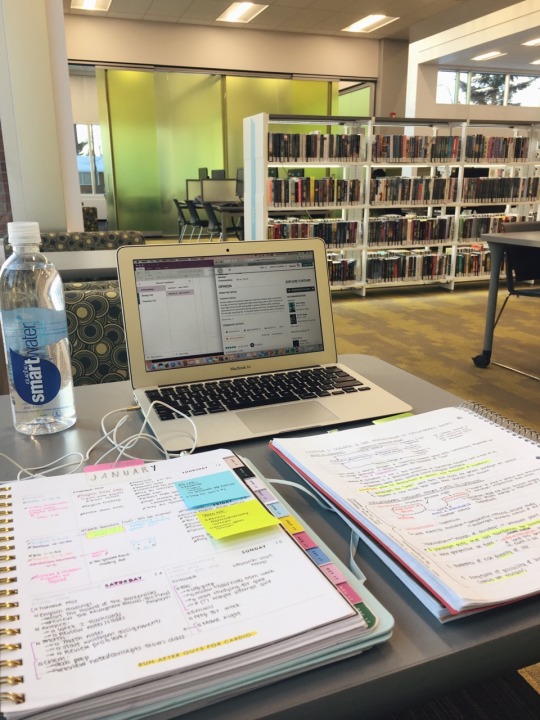
Early mornings at empty libraries are my favourite!😻📚📝 Long day ahead… making sure I’m caught up and ahead of the game after my first week back in classes.
Send me questions for a studyblr q&a😸😸
7K notes
·
View notes
Photo



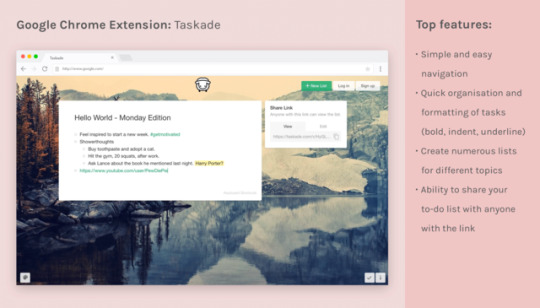
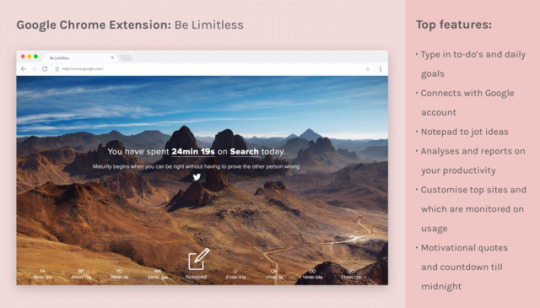



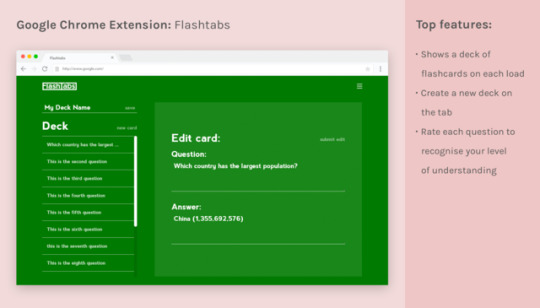
I thought I’d put together a list of the most popular new tab Google Chrome extension which pop up on studyblr! Here are links to download:
Momentum
Lanes
Taskade
Be Limitless
Laterbox
BeauTab (apparently a few people have had some safety concerns with this one, so be aware!)
Tupiq
Flashtabs
Happy downloading!
Other posts | Printables | Instagram | Youtube | Pinterest
18K notes
·
View notes
Text
studyblrs needed
hey guys so I’m gonna be moving up to London in a week and since I’ll be busy with unpacking and organising I need to queue a loooot of posts! Please reblog this so I can check out your blogs and reblog your posts!
202 notes
·
View notes
Photo

Getting some reading and a latte in before I start work.
#studyblr#studyspo#study#college student#college studyblr#introduction to the us food system#latte#college#will study for food
5 notes
·
View notes
Photo

Finally determining a note taking style I prefer for my readings.
#studyblr#studyspo#notes#reading#understanding food principles and preperation#will study for food#study#college#college studyblr#college student
2 notes
·
View notes
Photo

Some studying at the boy's place before he wakes up and I have to go to work.
#studyblr#will study for food#nutrition#aesthetic#understanding food principles and preperarion#college#college studyblr#college studyspo#college student
2 notes
·
View notes
Text
Study Tips Straight from My Professor
Hi guys! So a lot of our classes are starting today, even with the eclipse so I thought I’d share some tips my teacher sent out to help everyone get a better grade in the sciences classes, which may or may not be slightly trickier than others. It’s important to realize that no one can get through all of these, so pick what is most important to you.
1) Put in the time. Using the “three-to-one” rule, three hours of studying outside of class time per one credit hour. If your class is 3 credits, you should be studying independently an additional 9 hours. For 4 credits, 12 hours. Teachers expect you to treat studying as your job (even if you do have an actual job) meaning you should virtually be studying anytime outside of meals, class, sleep, work, etc. 2) NO cramming. It is MUCH more productive to study a little each day rather than 9 hours the day before a test. You will remember virtually nothing if you do and will not be as happy with the grade you recieve. Taking it in little bits stores it in long term memory and you will actually learn it rather than just regurgitating it onto a test. 3) Time management is crucial. Especially if you are someone who works or has kids or other priorities that also need attention. Make a schedule and. Stick. To. It. 4) Be prepared and organized. Do not be the person who lost their pencil and doesn’t have an extra, forgot a notebook or textbook, keys, etc. Give yourself enough time so you’re not rushing and make sure you have what you need! Your college professors are not here to attend to your personal needs when some of them have 800+ students a semester. 5) Use a calender. Write down your assignments, projects, class times, anything you need to remember. Use it religiously because it will be so much easier than trying to keep it all inside your head and that way you will not forget anything. 6) Use the book AND the notes. Most professors write things in a different way than the book and reading something in multiple different ways will better help you remember the concept rather than the sentence word for word. 7) Read ahead. Doing so helps you prepare for and not be lost in lecture and it will benefit you as well as the teacher. 8) Attend all/as many classes as you can and be an active listener. Sit up straight, face forward, don’t pay attention to what others around you are doing (I sit up front whenever possible). Keep an extra piece of paper near you in case you have questions so you can either ask or go back later and look it up yourself. 9) Take detailed notes. With permission, record the lecture so you can hear it again later, abbreviate whatever you are scribbling down, and then as soon as you can after class, rewrite it in a neater, nicer way and don’t be afraid to word things differently. A review shortly after class is proven to help it convert to long term memory. 10) Keep your phone off in class. I know we all love our phones and class is boring, but it’s also crucial information. We’ve all been through that period of regret where we wished we had paid attention. Don’t let that happen anymore. Use it only for emergencies and recording lectures. 11) Even if you don’t rewrite your notes after class, review them. Make sure to pay attention to anything the teacher may have repeated or any learning objectives they would like for you to know. 12) Study early and often! This goes along with no cramming but the sooner and more repetitively you relay information to your brain, the easier it will be to remember it. If you don’t look at the information for 2 weeks and then suddenly need to remember it all, not only will you be too stressed to retain it, you’ll also be wasting valuable time. Make your own study guides and test questions. 13) Make flashcards. Flashcards are only useful when you a) shuffle them occasionally and b) take the ones you’ve memorized out of the pile but still review them every now and then to make sure you still remember. Put any back in the pile that you missed. 14) Use mnemonic devices for lists of related terms. 15) Type or rewrite your notes. I’d recommend writing them again, because physical writing by hand is another way to help remember it. 16) Consolidate your material. This means: tables, lists, figures, concept maps. Reasonable chucks. 17) Teach it to someone else. The best way to tell if you have mastered something is that you are able to explain it to someone else correctly in a way that makes sense. 18) Pick a good place for effective studying. We all love our study groups, but let’s be honest. At most the first 20 minutes is talking, then 10 minutes of studying before half the group is surfing Tumblr and the other half is complaining they’re hungry. I prefer to study by myself for this reason. Find a quiet place with minimal distractions and get prepared to work your fucking ass off. 19) Get decent rest before the exam and be sure to get there early or on time, unpredictable situations included. Exams are important and your teacher will not care if there was a traffic jam. If you miss the exam, you miss the exam. 20) Learn from your mistakes. Review your incorrect exam answers and figure out why it was wrong and why the correct answer was correct. Talk to your teacher, TA, resource lab, anyone who may help you if you’re stuck. 21) Review the midterm and start preparing for finals. Most of the midterm material should be on the final, so it’s one of your best study guides. 22) Keep your textbooks and notes. I know we’re all broke as fuck and would like to sell them back, but you never know when that information will be useful in another class down the road. 23) Do NOT discuss grades, quizzes, tests, or exams with your class mates. Of course they’ll complain that they didn’t study, that chapter 6 was this, or chapter 8 said that and it was confusing. This type of conversation will only make you nervous so steer clear of all of it.
15K notes
·
View notes
Photo

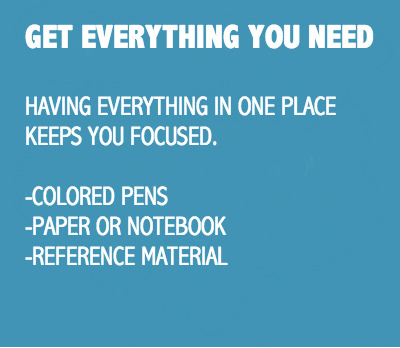




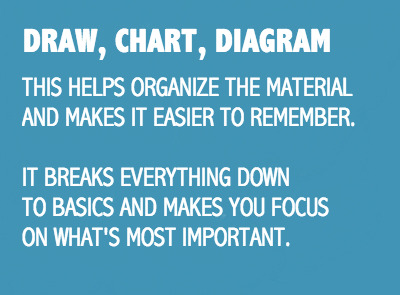


In med school, taking notes is hard because there’s SO much material. I remember going through one of my lectures and wondering how the hell I was going to simplify it to something I could actually remember. I usually make what are called “study sheets” after each lecture, and this is how I do them!
If there’s learning objectives, follow those. Use them to guide your notes. If there’s not, then use your intuition (based on what was covered the most) to figure out where to focus your notetaking. Just make sure you’ve organized everything in your head before putting it down to paper, because notes only work if they’re clear!
Use categories to break up your learning. In one lecture there’s often multiple components, so I use headings to separate the main points. That way they don’t all blur together in my head.
Whenever possible, make charts, diagrams, or drawings. I can’t tell you the amount of times I’ve remembered something on a test because I took the time to draw it out! If you’re a kinesthetic or visual learner, this is super helpful. It really simplifies the material and organizes it thoroughly. It’s much easier to study from a clear chart than a block of text.
When you do use text, keep it concise. Use different colors to write out key phrases and terms, and try not to write out paragraphs and paragraphs. Sometimes, it unavoidable, and you need a lot of text to understand a key concept. Short and sweet wherever possible, though, makes life easier for you!
Transform, transform, transform. Always try to put things in your own words wherever you can. When you think about a topic from multiple perspectives, you understand it a million times better.
When reviewing notes, read them aloud! Sometimes, I cover up one section and say everything I can remember about it. Then I check to see if I missed anything. It’s a great way to review (might be awkward if you have roommates, but mine is used to my impromptu lectures by now!).
14K notes
·
View notes
Photo

Just in case this helps anyone!! Go decorate those notes, friends!!
Instagram
17K notes
·
View notes
Text
New Studyblr
Hello! I’m Brooke and I wanted to create a Studyblr to help motivate me through the semester.
>< 21 >< College >< Community Nutrition major >< Agriculture minor ><
This fall I’m taking
Precalc
Intro to Food and Nutrition (+lab)
Intro to Agriculture and Food Systems
Community Justice and Food Advocacy
Knowledge and Power (a course for my women’s college)
Most of what I’m planning on posting is going to be how I study and what I study. So there’s also probably going to be a lot about nutritious, cheap food, how to cook and store food, interesting things in agriculture and urban farming, as well as my notes and planner and normal studyblr things.
2 notes
·
View notes